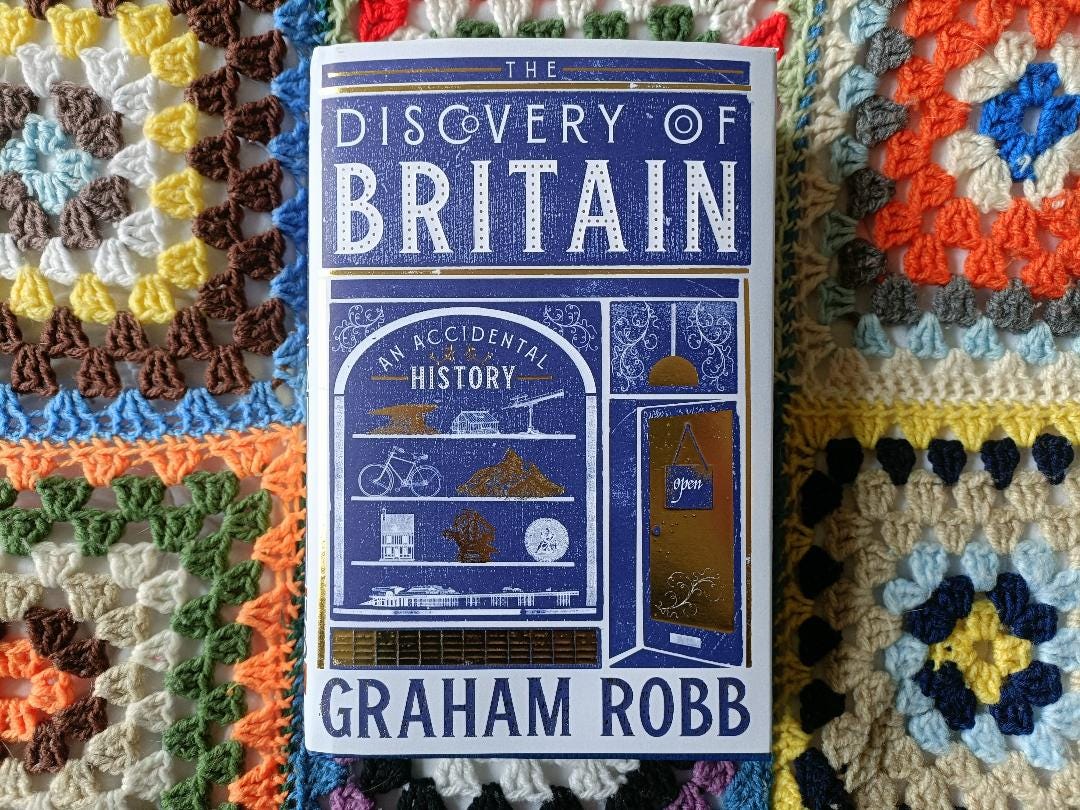In the autumn of 2018, just as Storm Ali was battering northern parts of the UK, Graham Robb and his wife Margaret were journeying home to Cumbria after a cycling trip in France. The Scotland-bound train they had boarded in London was forced to terminate at Preston, so the couple had to make a mad dash by bike to Lancaster to try and connect with a train rumoured to be leaving for Carlisle. During that 20-mile cycle ride north, they passed along a turnpike road, over canal bridges, past a 12th century monastery, onto a Roman road and finally boarded the train in Lancaster, formerly an inland port of the Ancient British Brigantes tribe. It was, as Robb records in the first chapter of “The Discovery of Britain”, “an accidentally coherent route backwards through two thousand years of British history. This book was conceived at that moment”.
As his previous book, the award-winning “The Discovery of France” demonstrated, Robb has an unerring ability to help us see the familiar as if for the first time. This idiosyncratic new book invites us to ride tandem on a free-wheeling tour of the British nation: its politics, its geography, its history. Written in short, digestible chapters, it is both erudite and not a little subversive in its approach to politics, geography, and history. I loved discovering for example that the noise of naval battles out at sea could once be heard in the streets of London; that erstwhile travellers from the south would sometimes employ interpreters north of the Trent; and that queuing in 1939 was ‘an irksome novelty enforced by bus conductresses’. As Robb asserts: “A country that has no secrets from its own population would scarcely be worth discovering”.
At this time of increasing division in this country, Robb’s ‘accidental’ but highly compelling approach to our national story subverts entrenched conventions in what we routinely learn about our history and culture; conventions that sometimes also give rise to unfortunate jingoistic notions about who we are as a nation.
“It’s an accidental history, partly because the book is a kind of adventure, full of discoveries that are unplanned”, Robb told me in a recent interview. “But it’s also making the point that history itself is accidental; it doesn’t follow a set pattern. If it did, there wouldn’t be any point in writing it; you might as well go along with Rishi Sunak when he asserted that “trying to unpick our history isn’t the right way forward”. As if once history has been made, then it’s finished and contains ‘The Truth’. The trouble is that good propaganda survives a very long time. So I wanted to open up our history and make it less predictable”
Published 2 October 2025 (Picador)


